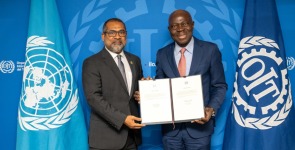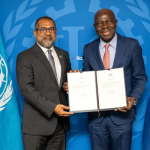
The Ministry of Climate Change, Environment, and Energy has entered into a Memorandum of Understanding (MoU) with the Istanbul Water and Sewerage Administration (ISKI) to collaborate on the development of the water and sewerage sector in the Maldives. The agreement was formalised with signatures from Minister Thoriq Ibrahim and the Deputy Director General of ISKI.
This MoU is designed to promote the exchange of technical expertise between the Maldives and Türkiye, specifically focusing on the water and sewerage sectors. Additionally, it will facilitate training programmes aimed at developing a skilled workforce in these areas and encourage joint participation in international conferences. The ministry has expressed optimism that this collaboration will significantly advance the infrastructure and systems related to water and sewerage management in both nations.
A Closer Look at Istanbul’s Leading Water Utility
The Istanbul Water and Sewerage Administration (ISKI) is Türkiye’s leading water utility, responsible for the water supply and sanitation services in Istanbul, a city with a population exceeding 15 million. Established in 1981, ISKI manages an extensive network that includes over 23,000 kilometres of both water transmission and wastewater lines. The organisation operates 24 water treatment plants and 87 wastewater treatment plants across Istanbul.
ISKI is recognised for its innovative approach to utility management, particularly in the deployment of smart technologies to address environmental challenges. For instance, ISKI has implemented a sophisticated centralised system for monitoring water quality, which includes real-time measurements of residual chlorine, pH, and temperature across multiple locations. This system has been instrumental in improving water quality and efficiency in the city.
This partnership marks a significant step towards enhancing the water and sewerage systems in the Maldives, potentially leading to better service delivery and infrastructure resilience in the face of climate change.












